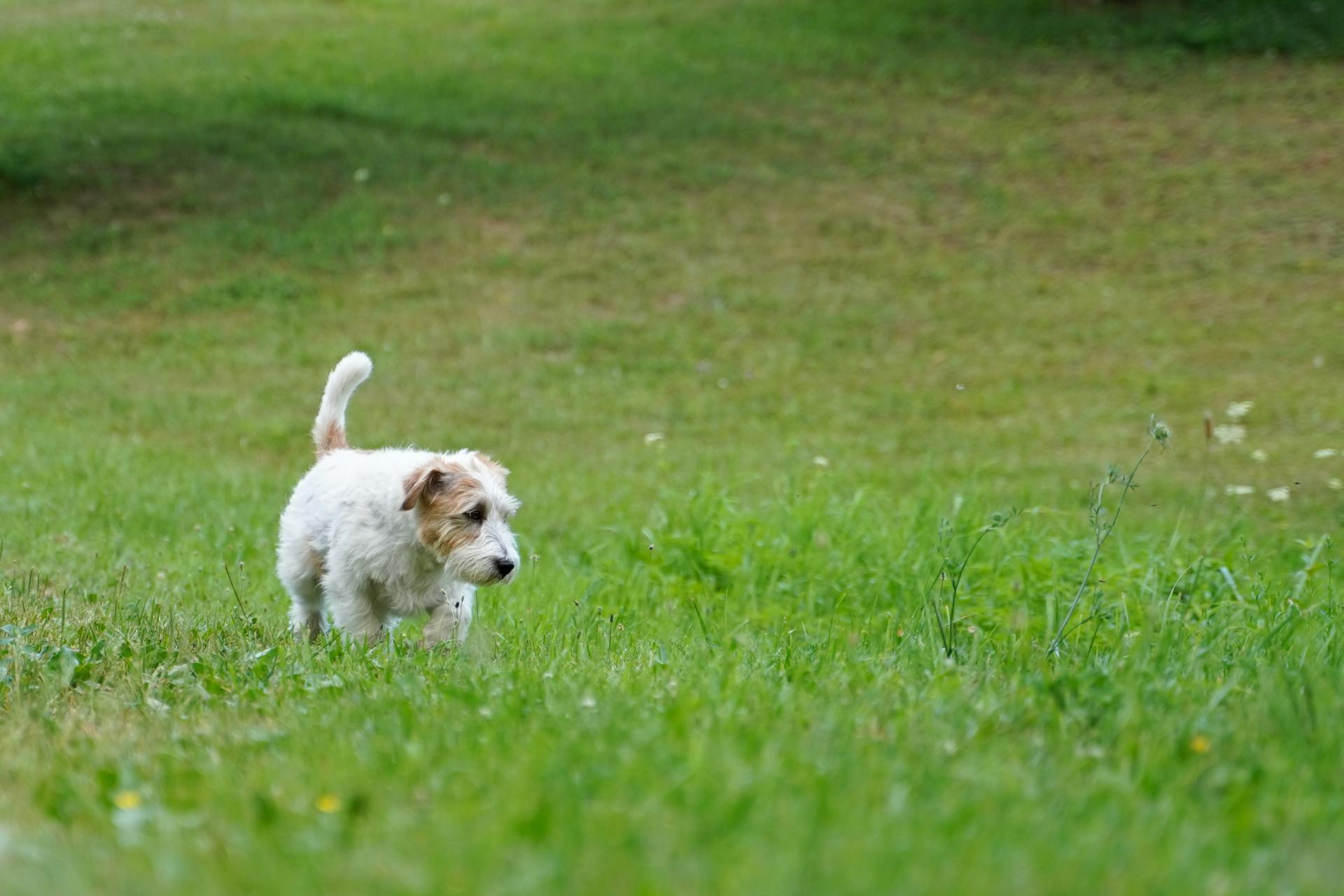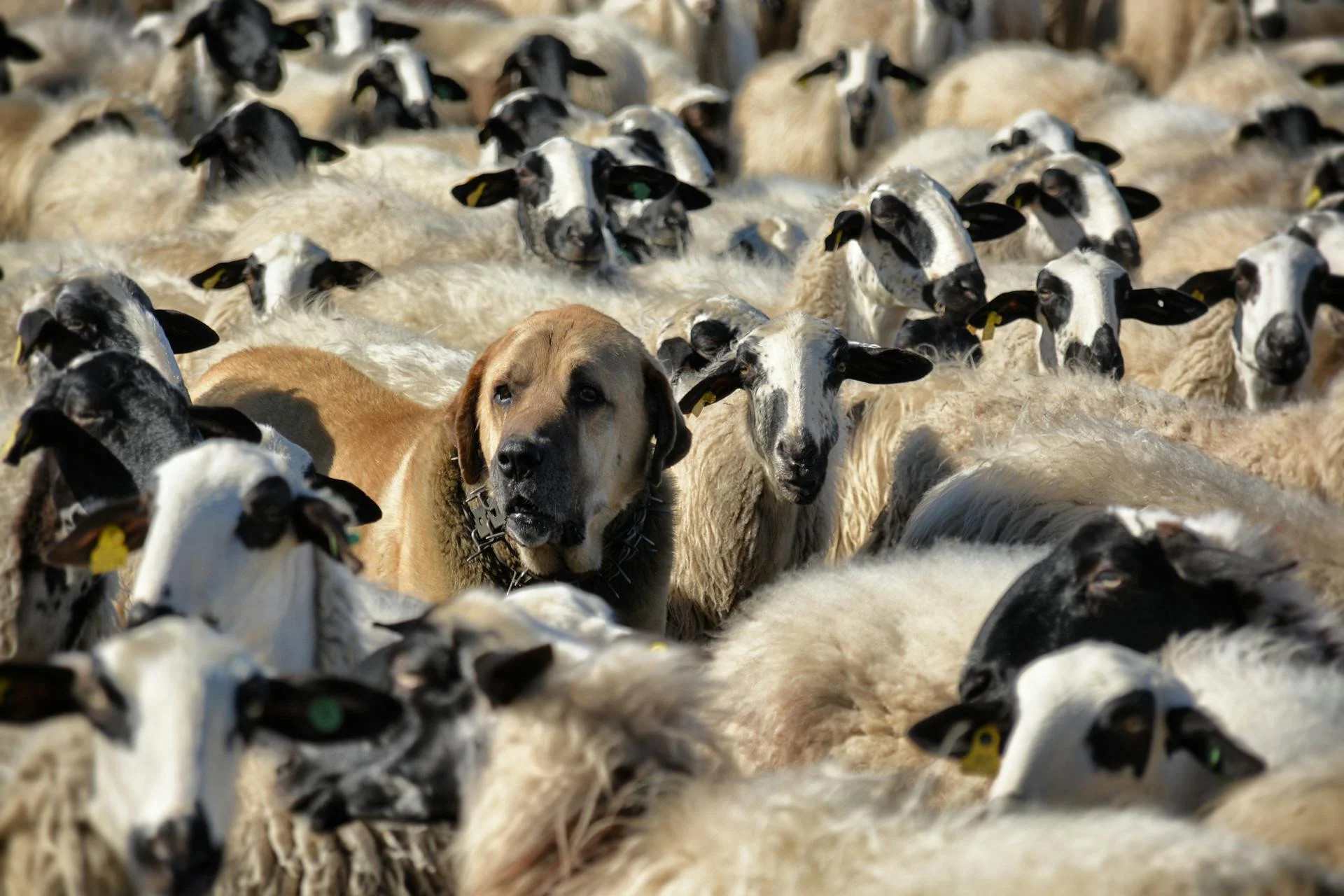
Jack Russells are intelligent dogs that thrive on mental and physical stimulation. They were originally bred for hunting and require regular exercise to stay happy and healthy.
Jack Russells are known for their strong prey drive and can become fixated on small animals like rabbits and squirrels. This can lead to unwanted behaviors like chasing and barking if not properly managed.
To keep your Jack Russell out of trouble, provide plenty of exercise and mental stimulation through activities like agility training and puzzle toys. A tired Jack Russell is a happy Jack Russell.
Jack Russells are also known for their loyalty and affection towards their owners, making them great family pets.
Jack Russell Behavior
If you're experiencing growling or aggression from your Jack Russell, it's essential to understand the underlying reasons. Overly protective or feeling threatened can be common causes.
Consistency is key when training a Jack Russell Terrier. They don't understand mixed signals, so it's crucial to be consistent in your commands and actions.
Being higher than your dog is a must, as getting below their eye level can be perceived as threatening. This includes leaning over them or getting too close to their face.
A change in character in your Jack Russell could be a sign of an underlying health problem, so it's always a good idea to consult a vet if you notice any unusual behavior.
Some common mistakes that can cause aggression in dogs include not respecting their space and treating them like humans. Make sure to keep them off sofas and beds and treat them with the respect they deserve as a dog.
Jack Russells are highly attuned to our body language, so it's essential to learn good doggie body language to avoid triggering aggressive behavior.
Worth a look: Dog Body Language with Other Dogs
Training and Behavior
Training a Jack Russell requires a calm and consistent approach, especially when it comes to excessive barking. They are intelligent dogs that can get bored easily if left alone, which can lead to barking.
A different take: Black Lab Dog Barking
To keep your Jack Russell occupied and active, it's essential to devote at least an hour a day to substantial, play-filled walks. They need to be walked at least twice a day, and you should also allow them to run around in a secure outside space between walks.
Jack Russells are confident and headstrong dogs, so they need a firm but fair trainer to keep them in check. Use plenty of positive reinforcement to let your pup know there's something in it for them.
Here are some key tips for training your Jack Russell:
- Use short, frequent training sessions to engage their active mind.
- Teach good lead and recall training to keep them safe when out and about.
- Re-channel their high prey drive into a game of "fetch" to satisfy their instinctive desire to chase.
By following these tips and being patient, you can help your Jack Russell develop good behavior and a strong bond with you.
Signs of Aggression
Signs of aggression to a dog are often subtle, but understanding them can help prevent conflicts. A dog showing submissive behavior, such as hanging their head low or rolling on their back, is a sign of aggressive dominance.
Approaching a dog from the front is a threatening display, especially when combined with baring teeth. This is a common sign of aggression in the animal kingdom.
Dogs naturally avoid eye contact, and staring straight into their eyes can be seen as rude. It's essential to understand that dogs don't like staring contests.
Shouting at a dog for growling only reinforces the aggression, so it's best to remain calm. Hitting a dog is never an option, and petting them when they're growling can be seen as rewarding bad behavior.
Check this out: Normal Dog Play vs Aggression
Training
Training your Jack Russell terrier requires a combination of intelligence, patience, and consistency. They are highly trainable, but it's essential to use positive reinforcement and short, frequent training sessions to engage their active minds.
To prevent unwanted behavior, establish clear boundaries and pack order from an early age. This will help your dog understand their place in the household.
Jack Russells are excitable and affectionate dogs, but jumping up on arrival shouldn't be tolerated. Be firm and teach them patience, and only show affection once you're settled down inside.
For another approach, see: Training Jack Russell Terrier Dog
A calm, consistent approach is key to teaching your Jack Russell not to bark. They need regular exercise and mental stimulation to prevent boredom, which can lead to excessive barking.
Here are some essential training tips for your Jack Russell:
- Use good lead and recall training to keep them safe when out and about.
- Be a firm but fair trainer, using plenty of positive reinforcement.
- Provide regular exercise and mental stimulation to prevent boredom and behavioral problems.
With the right training and care, your Jack Russell can thrive and become a well-behaved, loving companion.
Caring for a Jack Russell
Caring for a Jack Russell requires a significant commitment in terms of exercise, mental stimulation, and training. They need a lot of physical activity to stay happy and balanced.
Jack Russell terriers are high-energy dogs that need vigorous daily exercise, so be prepared to take them on long walks or runs. They also require mental stimulation to prevent boredom and destructive behavior.
These dogs are highly trainable, but they can be challenging to handle if they're not socialized properly. Early socialization is key to raising a well-balanced Jack Russell terrier.
Here are some key characteristics to keep in mind when caring for a Jack Russell:
Remember that Jack Russell terriers have a strong prey drive, so they may not be the best fit for households with other small pets.
Terrier Care
Caring for a Jack Russell requires a major commitment in terms of exercise, mental stimulation, and training.
These dogs are active and athletic, so they need regular physical activity to stay happy and well-balanced.
You'll need to expend the energy necessary to keep your Jack Russell terrier happy and healthy, which can be challenging but also incredibly rewarding.
Jack Russell terrier puppies are almost too cute for words, but they grow into energetic dogs that require a lot of attention and care.
With the right care and attention, your Jack Russell can thrive and become a beloved member of your family.
Diet and Nutrition
Jacks are active dogs that need a quality diet to fuel their latest and greatest adventures. They can be persistent beggars, and don't forget about their incredible ability to jump and swipe a snack from counters, tables, and more.
A well-balanced and properly proportioned meal regimen is essential for their overall health and well-being. They'll benefit from regular meals that meet their nutritional needs.
You should keep a close eye on your JRT's weight since an overweight dog is at risk for numerous health problems.
Can a Child Stay Home Alone?
A Jack Russell's needs are pretty similar to a child's in some ways. Leaving a child home alone for too long can be just as detrimental as it is for a Jack Russell, potentially leading to feelings of loneliness and depression.
If you do have to leave your child home alone, make sure they have a way to stay occupied and engaged, just like you would for a Jack Russell. A bowl of fresh water and some snacks can go a long way in keeping them happy and content.
Leaving a Jack Russell alone for a few hours is okay, but leaving a child alone for that long can be a different story. Children have different needs and require more attention and supervision than a dog, even if it's just for a few hours.
You should consider the age and maturity level of your child before leaving them home alone. If they're old enough to understand and follow simple rules, it might be okay, but if they're still young, it's best to stick with a trusted family member or babysitter.
Explore further: How Long Do Jack Russels Live
Jack Russell Overview
The Jack Russell terrier is a high-energy breed that's perfect for active families. They're intelligent, fearless, and athletic, making them a great companion for those who enjoy outdoor activities.
These dogs have a strong prey drive, so it's essential to socialize them early and often to prevent problems with other small pets. In fact, their high energy level and strong instincts make them best suited for experienced dog parents.
Jack Russell terriers are generally healthy with a long life span of 13 to 18 years, making them a great long-term companion. With proper exercise, mental stimulation, and training, they can thrive in a variety of living situations.
Here are some key characteristics of the Jack Russell terrier:
Terrier Overview
The Jack Russell Terrier is a fun-loving breed that's perfect for active families. They're highly intelligent, with a strong prey drive and high energy level, making them a great companion for those who can keep up.
Their origin is in England, and they come in a variety of coat colors, including white with black, tan, or brown markings. They're relatively small in size, weighing between 13 to 17 pounds and standing between 10 to 15 inches tall.
Here are some key characteristics of the Jack Russell Terrier:
Their lifespan is relatively long, ranging from 13 to 18 years, making them a long-term companion. With proper training and socialization, they can thrive in a variety of living situations, including households with other pets.
Terrier History
The Jack Russell Terrier has a rich history that dates back to the 19th century. They were originally bred by Reverend John "Jack" Russell in England in 1819.
Their early purpose was to hunt small game, specifically foxes, rabbits, and badgers. This required them to be brave, energetic, and intelligent.
The breed's compact size and agility made them well-suited for navigating dense underbrush. Their strong prey drive and keen senses allowed them to track and flush out their quarry.
In the late 19th century, the Jack Russell Terrier gained popularity as a companion animal, prized for their affectionate and lively personalities.
Terriers: Pros and Cons
Terriers can be a handful, and it's essential to know what you're getting into. They have a strong prey drive, which means they'll chase anything that moves.
Their high energy levels require vigorous daily exercise, so be prepared to get moving. Whether it's a long walk or a game of fetch, they need to burn off steam.
One thing to consider is their tendency to bark excessively. It's not that they're trying to be loudmouths, but they do get excited and vocal.
Here are some key characteristics to keep in mind:
- Strong prey drive
- Prone to excessive barking
- Requires vigorous daily exercise
If you're up for the challenge, a terrier can be a loving and loyal companion. But it's crucial to be aware of their needs and personality traits.
Temperament and Personality
Jack Russells are small, smart, and full of energy, which can sometimes get them into trouble. They're known to make themselves heard, often barking at other dogs.
Despite their feisty personalities, Jack Russells can be socialised to get along with your cat, but they have a high prey drive and may struggle to hold back from chasing wildlife on walks. Good recall training is especially important to prevent them from wandering off.
Jack Russells are loyal and loving companions, but they do require attention and interaction. They're happiest in households where someone is around for most of the day, and they can suffer from separation anxiety if left alone for too long.
Here are some key traits to keep in mind when considering a Jack Russell as a pet:
- High energy and requires regular exercise and mental stimulation
- Prone to barking, especially at other dogs
- May struggle with separation anxiety if left alone for too long
- Requires good recall training to prevent wandering off
Temperament & Personality
Jack Russells are small, smart dogs with a big personality. They're often feisty and like to make themselves heard, which can be entertaining but also challenging at times.
One thing to consider is that Jack Russells aren't always suited to homes with young children or small pets due to their high energy and prey drive. However, with proper socialization and training, they can make great family pets.
Jack Russells are also prone to separation anxiety, which means they'll be happiest in households where someone is around for most of the day. This is because they're part of the independent Terrier breed group and can get anxious when left alone.
Despite their small size, Jack Russells are fearless and curious, with an insatiable appetite for adventure. This can sometimes get them into mischief if they're bored or not provided with enough stimulation.
Here are some key characteristics to keep in mind when considering a Jack Russell as a pet:
Overall, Jack Russells are intelligent, energetic, and loyal dogs that require an owner who can provide them with plenty of exercise, mental stimulation, and attention.
Do You Like to Be Held?
Jack Russell Terriers love to be held, but only at the right time. They're extremely loving and affectionate dogs when given the proper care, treatment, and respect.
If you try to cuddle Jack Russells too much, they can feel irritated. This is why it's essential to read their cues and not overdo it.
Jack Russell Terriers are not picky about their affection, but they do appreciate it when it's on their terms. With proper care and attention, they'll often seek out physical contact and snuggle time.
Remember, every dog is different, and what works for one Jack Russell may not work for another.
A fresh viewpoint: Alternative Food for Dogs
Frequently Asked Questions
What is the downside of a Jack Russell Terrier?
Jack Russell Terriers can be prone to various health issues, including eye and joint problems, heart disease, and epilepsy. While they can make wonderful pets, it's essential to be aware of these potential downsides before bringing one home
What age do Jack Russells calm down?
Jack Russells typically calm down between 10 to 12 years old, but may require earlier training and exercise to manage their energy.
Sources
- https://thejackrussell.co.uk/stop-jack-russell-biting-growling-behaviour/
- https://www.thesprucepets.com/jack-russell-terrier-dog-breed-profile-4773883
- https://www.yourpurebredpuppy.com/reviews/jackrussellterriers.html
- https://www.petplan.co.uk/pet-information/dog/breed/jack-russell-terrier/
- https://www.countryliving.com/uk/wildlife/dog-breeds/a36418607/jack-russell-terrier/
Featured Images: pexels.com


